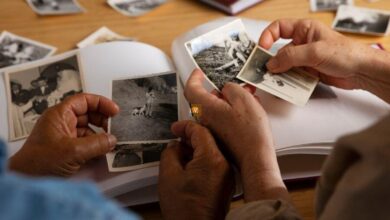The Evolution of Custom Badges: From Identification to Branding

In the business world, custom badges have grown beyond just IDs. They now serve as strong symbols of a brand, helping organizations connect with their audience. This shift is exciting and important for those in branding and marketing.
In this blog post, we’ll delve into the journey of custom badges. We’ll showcase their vital roles in building brands and communicating effectively. By the end, you’ll see why personalized badges are a must-have in today’s branding approaches.
The Origin of Custom Badges
Custom badges have a long history, dating back to ancient civilizations. Initially, they were used for identification and authority. In ancient Egypt, officials wore badges to signify their rank and role in society.
These badges were often made of precious metals. They adorned it with intricate designs, symbolizing power and importance. Over time, it evolved, reflecting the cultural and technological advancements of different eras.
In medieval Europe, knights and soldiers used badges to show their allegiance to a lord or kingdom. These badges were often made of metal or fabric. It features heraldic symbols and colors representing the wearer’s family or region. They served as identification on the battlefield and helped create unity and loyalty among troops.
By the 19th century, custom badges became more common in various sectors. Police officers, firefighters, and military personnel wore badges. The badges were symbols of authority and service.
These badges were designed to be easily recognizable. It allows the public to identify and trust the individuals wearing them. The use of badges in these professions helped establish a sense of order and professionalism. It helped reinforce the importance of the roles they represented.
The Shift to Modern Badges
During the 20th century, custom badges went through big changes in design and purpose. New manufacturing technology made it easier to create more detailed and long-lasting badges. Eventually, it became available to more groups. This era also saw a shift from basic badges to ones that included branding.
Businesses and organizations realized that custom badges could be great for marketing. They started adding logos, slogans, and other branding to their custom badge design. This not only helped them look professional but also reinforced their brand. Custom badges became a way for companies to stand out and leave a good impression.
Not just businesses, but schools, universities, sports teams, and clubs also started using custom badges. Schools used badges to boost school spirit. While sports teams and clubs use them to build unity and belonging. These badges became symbols of loyalty and affiliation, creating a strong sense of community.
The Role of Custom Badges in Branding
Today, custom badges play a crucial role in branding and marketing strategies. They are used by organizations of all sizes to build brand awareness, create a professional image, and connect with their audience. Let’s take a closer look at how custom badges are used in different branding contexts.
Building Brand Awareness
Custom badges can help your brand get noticed and remembered. When you use logos, colors, and other branding elements in badge designs, it makes your image consistent and easy to remember. When your team wears these badges, they help spread the word about your brand wherever they go.
For instance, imagine a home services company where employees wear badges with the company logo and colors. This makes them identifiable to customers, building trust and showing professionalism. Customers start linking the badge with the excellent service and reliability of the company. This keeps them coming back for more.
Establishing a Professional Image
Custom badges create a professional image for organizations. When all members wear badges with the same design and branding, it conveys unity and professionalism. This is crucial in customer-facing roles, where first impressions matter.
Retail employees wear name tags or badges with the store’s logo and colors showing a consistent and polished appearance. This helps instill customer confidence, making them more likely to trust the staff and the store. A professional image also fosters pride and belonging among employees.
Fostering Connections and Engagement
Custom badges help people feel connected and engaged with each other. When badges have names or achievements on them, they show appreciation for individual efforts. This makes everyone feel valued and happy at work.
Moreover, custom badges can be used to support events or campaigns. For example, a non-profit could give badges to volunteers at a fundraising event. These badges show gratitude and bring volunteers together with a shared goal. Feeling connected to a cause or group motivates people to stay involved and dedicated.
Designing Effective Custom Badges
To make the most of custom badges in your branding strategy, it’s essential to design them effectively. Here are some key considerations for creating impactful custom badges.
Simplicity and Clarity
A well-designed badge should be simple and easy to understand at a glance. Avoid cluttering the badge with too much information or intricate designs. Focus on incorporating the most important branding elements, such as:
- the logo
- colors
- a brief tagline (if applicable)
Simplicity ensures that the badge is easy to recognize and memorable.
Consistency with Brand Identity
Ensure that the design of the custom badge aligns with your organization’s overall brand identity. Use the same colors, fonts, and design elements that are used in other branding materials, such as:
- website
- business cards
- promotional materials
Consistency reinforces the brand image and creates a cohesive and professional appearance.
Quality and Durability
Invest in high-quality materials and manufacturing processes to ensure that the custom badges are durable and long-lasting. A well-made badge reflects positively on the organization and demonstrates a commitment to quality. Consider factors such as the type of material (e.g., metal, plastic, fabric), custom badge printing techniques, and fastening mechanisms to ensure the badges meet your requirements.
Experience the Benefits of Using Custom Badges Now
Custom badges now serve a dual purpose beyond identification and authority. They play a crucial role as branding tools, boosting visibility, professionalism, and engagement. Businesses, schools, and organizations rely on them to cultivate a cohesive and trustworthy image.
By crafting clear, cohesive, and high-quality badges, organizations can convey their brand identity. Introducing custom badges into your approach can help forge connections and inspire loyalty. This establishes them as a key element of contemporary branding.
Looking for more intriguing content? Browse our blog for a wealth of articles on a variety of fascinating topics. Happy reading!





This Writing is a treasure trove of knowledge. Thank you for The contributions!
Always excited for The posts, because who else is going to make me feel this inadequately informed?
Great article! I learned so much from it. Your in-depth analysis and thoughtful insights were very helpful. I appreciate the effort you put into writing this and sharing it with us. Thank you for your hard work and dedication to providing valuable content.
The writing is a masterpiece. You managed to cover every aspect with such finesse.
Unique perspective? Check. Making me rethink my life choices? Double-check.
The insights on the state of the country add so much value to the conversation. I always learn something new from you.